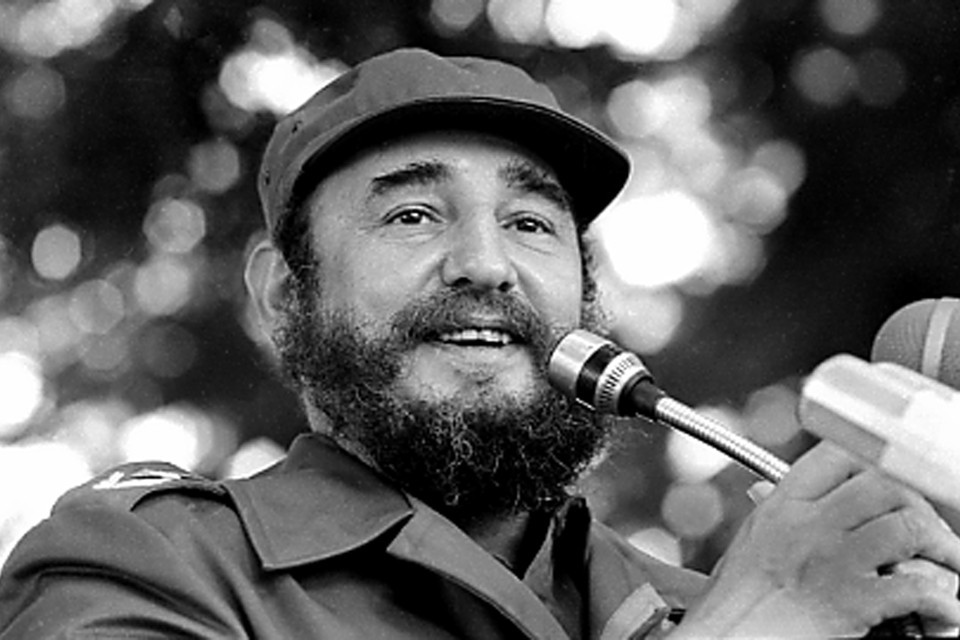PBS: Escaping Eritrea … [Read More...] about ካብ ውሽጢ ቤት ማእሰርታት ኤርትራ
Castro in Africa
Jamie Miller | Dec 3, 2016 | The Atlantic
The contradictions of exporting revolution

For nearly three decades, Fidel Castro devoted vast amounts of Cuba’s limited resources to the project of exporting his revolution to Africa, even as it stuttered at home. As leader of Cuba, Castro advocated a radical departure from the prevailing post-war liberal internationalism, premised more on the ideas of Frantz Fanon than those of Adam Smith. Decolonization seemed to offer a prime laboratory for that vision. Cuba volunteered doctors, nurses, military advisers, and troops to support what Castro and Che Guevara saw as progressive regimes—“sister countr[ies],” in Havana’s terminology—in Algeria, Eastern Congo-Kinshasa (today’s Democratic Republic of Congo), Congo-Brazzaville, Guinea-Bissau, and, later, Ethiopia.
In the wake of the Vietnam War, the U.S. Congress and American public opinion were extremely hostile to another military commitment abroad in a place even more unknown to them than southeast Asia. But elements in the apartheid regime were deeply concerned that an MPLA government in Angola might become a springboard for the African National Congress and for the South West Africa People’s Organization, which contested South Africa’s control over South-West Africa (what today is Namibia), through an expired League of Nations mandate. With the white South Africans volunteering a full military effort, the Ford administration decided to let them do America’s dirty work. The South Africans could, and should, have secured an explicit quid pro quo for offering to be America’s shock troops, but failed to do so.
None of this should obscure the many failures and contradictions of Cuba’s African foreign policy. Most of Castro’s partners calcified into one-party regimes manifesting few of his lofty ideals. Castro’s opposite number in the MPLA’s Angolan regime was José Eduardo dos Santos—still the leader of Angola today. Few of Cuba’s allies fully reciprocated Castro’s generosity. In this context, it seems likely that much of the enduring enthusiasm on the part of Havana for its African mission stemmed from its ideological value. Foreign successes perhaps helped to obscure that the revolution was stalling badly at home. Then there was the unmissable irony at the heart of the whole policy: Havana made judgments about which third-world movements most resembled its model for the future, and then put its credibility in the hands of local leaders with their own priorities—similar to what Washington was doing at the same time.
But there was one big win. Cuba’s deeply improbable campaign in distant southern Africa was an important factor in the demise of apartheid, though it was not, as some claim, the dominant or decisive one. The South African system was imploding anyhow, as the Broederbond’s 1986 epiphany attests. But the war did accelerate a loss of white confidence in the regime and its apartheid model. Cuba’s campaign indirectly forced white voters and their family members to personally sacrifice in defense of apartheid—sacrifices they were, ultimately, unwilling to continue making.
By contrast, Castro was prepared to bear the costs of his vision, and to force them upon Cuba. “The cost in human terms is enormous,” he told Neto. “This effort requires great sacrifice for tens of thousands of families who have a son, or a father, or a brother abroad.” As this revealing statement suggests, Fidel Castro’s African adventure—improbable as it was—was hardly without contradictions.
